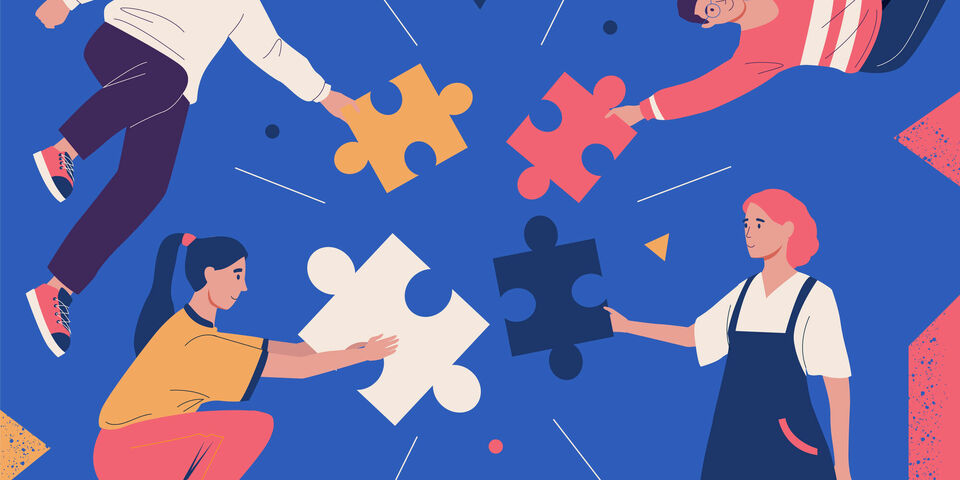Boards bring each other up to speed on social safety
What is your role as a board member of a student association in cases of sexually transgressive behavior and discrimination? And what should you do - or not do - when faced with such situations? These are the kinds of topics that were discussed by the board members of twenty student associations during a Social Safety Lunch, organized by student party DAS Eindhoven.
It is mainly sports associations that are represented at the lunch, although board members of umbrella organizations, study associations and all three social associations are also present. A brief introduction by Student Diversity Officer Lara Hofstra about Confidential Contact Persons (CCPs), the Intro and a possible social safety training for board members is followed by some sort of musical chairs game resulting in mixed groups of board members. Anne Karien van der Stee, who organizes the lunch on behalf of DAS, provides the participants with topics to discuss.
It turns out that there is a lot of difference in what associations are already working on in terms of social safety and how well that is going. One association that seems to be a bit further ahead than some others is SSRE, which set up a system last year that allows members to make anonymous reports, which may also lead to suspensions. “We were shocked when we actually started receiving reports,” says a board member to her discussion partners from Ichtus and Don Quishoot. “That’s when you realize these things are really happening.” The system also introduces new challenges, because if you suspend someone and don’t disclose who it is, members can start speculating about that among themselves, which also doesn’t guarantee a safe environment, another SSRE board member tells members of Quatsh and Squadra Veloce.
In English
The cross-pollination between board members leads to more examples of the efforts associations are already making in the area of social safety. For example, Don Quishoot has appointed two CCPs on its own initiative - although they would have preferred four - and all the communication at Quatsh is now in English. The latter will become increasingly relevant, says Hofstra later on in the meeting, as many associations are getting more and more international members. Although, for now at least, the proportion of international students at sports associations seems to be considerably larger than at, say, social associations.
There is an open atmosphere during lunch and the students do not shy away from difficult topics. For example, one group discusses what to do in the event of a case of sexual misconduct that is so serious that the police have to be involved. All three of them are unable to give a good answer, because there is often no evidence and a false accusation can have serious consequences. So far, it appears that these kinds of situations occur rarely if at all at many associations, but if they do occur, as a board member you have to take action.
And what if the board itself is the problem for a member? Someone suggests to make the group to which problems can be reported larger, so that the board cannot sweep any unfavorable things about itself under the rug. But then more members will know about what is going on, is that desirable? And even when you’re no longer on the board, members who reported something have to be able to trust that you won’t tell anyone.
Training
Because of issues such as these, there is a clear interest in the training that Hofstra offered at the beginning of lunch, where boards can learn about their role in these situations and how best to deal with them. A former board member from Impact is also on board with the idea, because as a trainer he recently found himself in a situation where a member came across as somewhat aggressive to other members. He talked to the person in question and that was enough to solve the problem. That felt good, but it would be nice to be better prepared at such a moment and feel more confident about what to do, he says.
Together with his group mates from Industria and Don Quishoot, he takes stock: what do they think is the role of a board when it comes to social safety? Mainly listening to members, taking them seriously and referring them to the right person, they conclude. And being approachable, so that everyone feels free to raise a concern if necessary.



Discussion